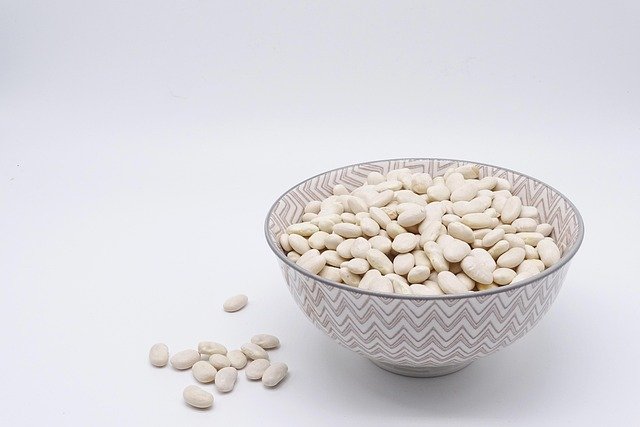Essential Crohn's Disease Treatments and Care Guide
Discover practical, up-to-date options for managing Crohn's disease, from medications and nutrition strategies to surgery and emerging therapies. This comprehensive guide explains common drug classes, when surgery may be needed, the role of diet and the promise of new treatments like biologics, stem cells, and microbiome approaches—helping patients and caregivers make informed decisions about long-term digestive health.

Crohn’s disease is a long-term inflammatory condition of the gastrointestinal tract that can cause pain, diarrhea, fatigue, and complications such as strictures or fistulas. Managing it usually requires a combination of medical therapies, lifestyle adjustments, and sometimes surgery. Below is a clear overview of current treatment options, how diet fits into care, when surgery becomes necessary, and promising developments on the horizon.
Medications commonly used to treat Crohn’s disease
Medications are the first line for controlling inflammation, preventing flares, and treating complications. The choice depends on disease severity, location, and the patient’s medical history.
-
Aminosalicylates: Drugs like mesalamine have anti-inflammatory effects and may be used for milder disease or to maintain remission in some patients. Their benefit in Crohn’s disease is more limited than in ulcerative colitis but they remain an option in selected cases.
-
Corticosteroids: Prednisone and budesonide are effective at rapidly reducing inflammation during flares. Because of systemic side effects, steroids are generally used short-term to induce remission rather than for ongoing maintenance.
-
Immunomodulators: Agents such as azathioprine, 6-mercaptopurine, and methotrexate work by dampening the immune system’s overactivity. They can be helpful for steroid-sparing maintenance therapy but require periodic blood monitoring for side effects.
-
Biologic therapies: These targeted drugs (for example, infliximab, adalimumab, ustekinumab, vedolizumab) block specific molecules involved in the inflammatory process. Biologics have changed Crohn’s care for many patients, especially those with moderate to severe disease or complications.
-
Antibiotics: Medications like metronidazole or ciprofloxacin are used when infections, abscesses, or certain types of fistulas are present. They are not a primary long-term therapy for inflammation alone.
Each class has benefits and risks; treatment plans are individualized and often adjusted over time based on response and tolerance.
How diet and nutrition affect management
No single diet cures Crohn’s disease, but nutrition is a vital part of symptom control and overall health. Key approaches include:
- Identifying and avoiding personal trigger foods that worsen symptoms (common culprits include high-fat meals, dairy for lactose-intolerant individuals, and certain raw vegetables during flares).
- Eating small, frequent meals to reduce digestive burden.
- Staying well-hydrated, particularly during episodes of diarrhea.
- Using a low-residue or low-fiber diet temporarily during flare-ups to reduce obstruction risk and ease symptoms.
- Supplementing vitamins and minerals when deficiencies are present — vitamin B12, iron, vitamin D, and folate are commonly monitored and replaced as needed.
Working with a registered dietitian experienced in inflammatory bowel disease helps create a personalized plan that balances symptom control with adequate nutrition.
When surgery is necessary and common procedures
Medication controls Crohn’s for many people, but surgery becomes important when complications arise or medical therapy fails. Reasons to consider surgery include:
- Loss of response to medications or intolerable side effects
- Development of strictures (narrowed bowel), fistulas (abnormal connections), or abscesses
- Suspicion of precancerous changes or cancer in the intestine
- Growth or developmental problems in children due to uncontrolled disease
Typical surgical options:
- Strictureplasty: Widens narrowed intestinal segments without removing bowel, useful to preserve length.
- Resection: Removes the diseased portion of intestine and reconnects healthy ends; common for obstructing segments.
- Fistula repair or drainage of abscesses: Addresses abnormal tracts and infected collections.
Surgery can relieve complications and improve quality of life but is not a cure — disease can recur at other intestinal sites, and ongoing medical follow-up is essential.
| Treatment type | Purpose | Points to consider |
|---|---|---|
| Aminosalicylates | Reduce mild inflammation | Best for select mild cases; low side-effect profile |
| Corticosteroids | Rapid flare control | Effective short-term; not for long-term use |
| Immunomodulators | Maintain remission, steroid-sparing | Requires blood monitoring for safety |
| Biologics | Targeted suppression of specific pathways | Often very effective; higher cost; infection risk |
| Antibiotics | Treat infection, certain fistulas | Adjunctive therapy; short courses common |
| Surgery | Manage complications (strictures, fistulas) | Not curative; may improve symptoms and function |
Cost disclaimer: Treatment costs vary widely by location, provider, and insurance coverage. This table provides general information only.
Emerging and experimental approaches
Research continues to expand the therapeutic toolbox for Crohn’s disease. Areas under investigation include:
- Stem cell therapy: Using autologous (patient-derived) or allogeneic stem cells to promote tissue healing and modulate immune responses, particularly for complex fistulas.
- New biologic agents and small molecules: Targeting different inflammatory pathways may help patients who do not respond to current biologics.
- Microbiome-based therapies: Fecal microbiota manipulation and probiotics are being studied for their potential to rebalance gut bacteria and reduce inflammation.
- Gene and personalized medicine: Understanding genetic drivers may lead to tailored therapies in the future.
While promising, many of these options require further study to define long-term safety and effectiveness.
How patients can optimize their treatment plan
Successful management is collaborative. Practical strategies include:
- Following medication regimens and attending scheduled follow-ups
- Reporting new or worsening symptoms promptly so treatments can be adjusted
- Incorporating regular exercise, smoking cessation, and stress-management techniques
- Seeking nutritional counseling for symptom-driven diet plans and supplementation
- Engaging with support groups or counseling for emotional and practical support
- Staying informed about clinical trials and emerging treatments, and discussing suitability with providers
A coordinated team — often including a gastroenterologist, surgeon, dietitian, and primary care clinician — helps tailor care to each person’s goals and medical needs.
This article is for informational purposes only and should not be considered medical advice. Please consult a qualified healthcare professional for personalized guidance and treatment.






